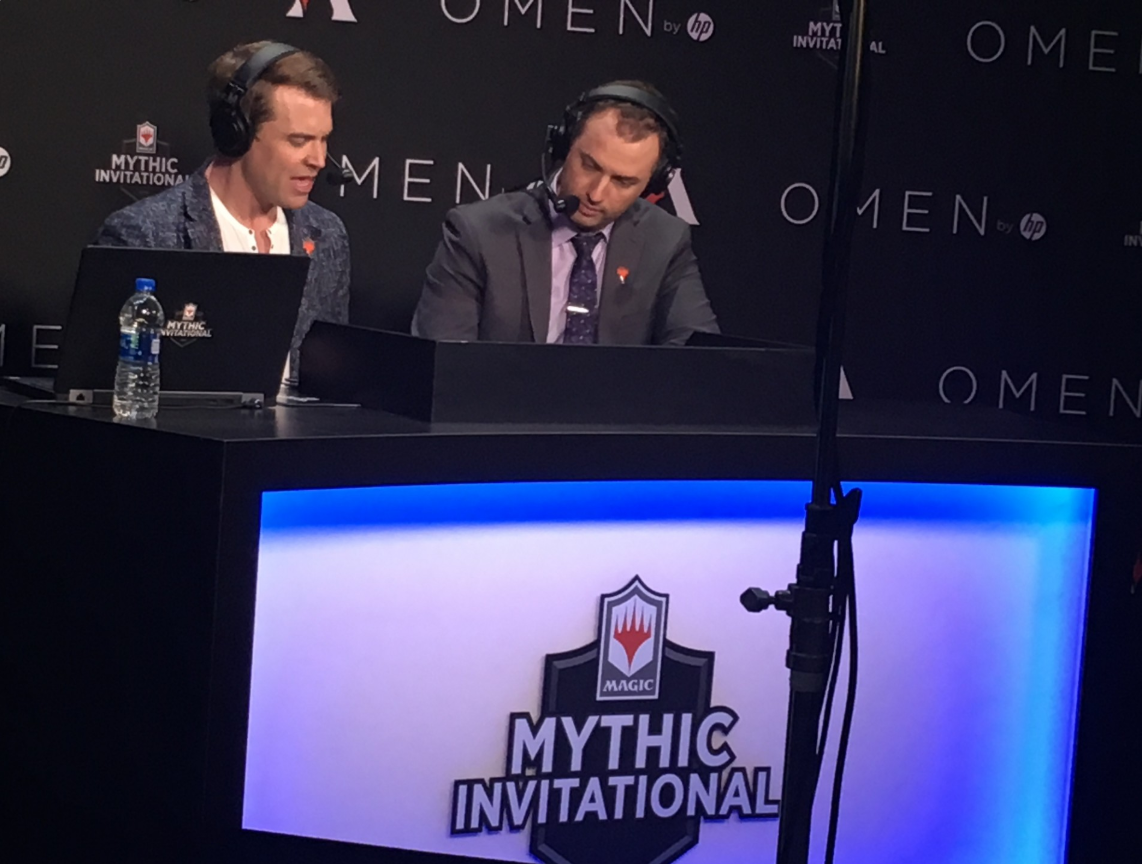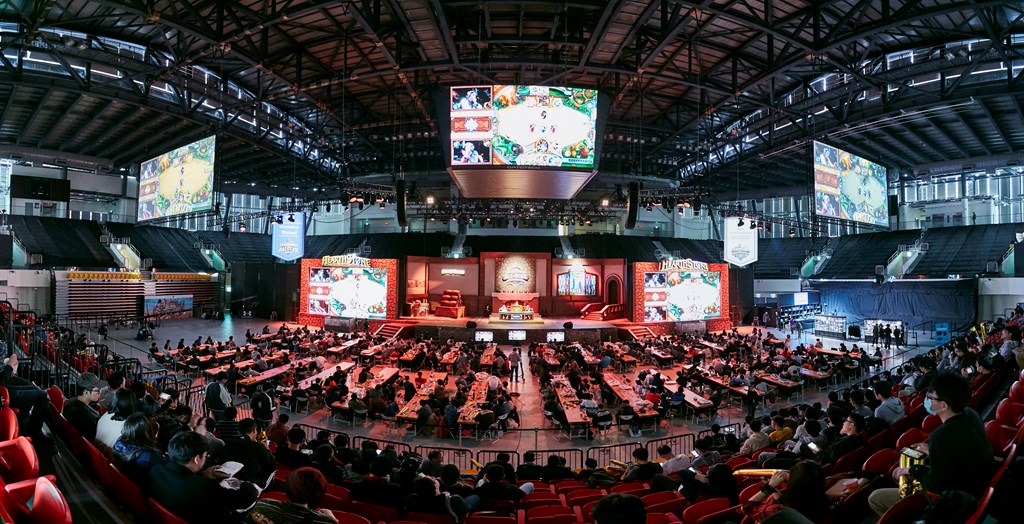
There is a common stigma about the gaming industry from the general public that it's a "kids hobby" and they will "grow out of it eventually." Well, apparently Brian Kibler missed that memo as he is set to celebrate his 39th birthday in September. Kibler is currently one of the most well-known and accomplished individuals in the industry. His storied career that spans two decades has led him down the paths of a professional player, game designer, streamer, broadcaster, and more.
Last weekend, Kibler attended PAX East, a gaming exhibition held in Boston, Massachusetts where he took to the casting desk for the Magic: The Gathering Arena $1 million Mythic Invitational event.

In between matches, Kibler took a few moments to reflect on his journey in the game's industry and if it at all feels weird to see teenagers-- no younger than himself when he started--making tens or hundreds of thousands of dollars playing games in 2019.
"It is great to see how the gaming industry has grown so much and has become so mainstream. I remember when I was 13, 14, 15 and I was playing games it was very much a niche thing. It was very much, you know, I was having to go out of my way to find hobby stores to play Dungeons & Dragons or to play Magic with people and it wasn't something that you could turn on your TV and find or turn on Twitch as Twitch was many many years in the future," said Kibler.
"So I think the fact that gaming has become so much more of a mainstream thing and has become so much more discoverable for people who are interested in that sort of thing has been fantastic for people of all ages. I feel like I have sort of been in the position where I have seen all of the various phases in the evolution of gaming from that Stranger Things-style basement of my friend's house to big stages and bright lights."
Don't be mistaken, however, there are times where Kibler feels like he has lost touch with the youth of today. But he understands it is his job to stay relevant and sometimes that means he needs to learn.
"I still do not know what '
"I would not be doing this and I would not have been doing this for 25 years if it were not something that I truly and deeply enjoy it and take great pleasure in."
Kibler's professional MTG playing career ended more than five years ago. Generally, after one retires from competing at a high-level, their relevancy disappears as well. That wasn't the case for "The Dragonmaster." Years later, Kibler has not only managed to stay in the gaming spotlight but has experienced growth since his playing days.
How is that possible?
"Number one, the games that I play and fell in love with are strategy games that I can keep playing and talking about into my 30s, 40s, and who-knows-how-long. That is very different than, say, a shooter game or a MOBA game where your reflexes slow down when you hit your late-twenties and suddenly you are a dinosaur or relic and you can maybe coach. Frankly, for me, what has kept me in it for so long --and is part of the reason why people have stayed interested in what I have to say-- is that I just love these games.
I would not be doing this and I would not have been doing this for 25 years if it were not something that I truly and deeply enjoy it and take great pleasure in. Specifically collectible card games have that characteristic in that they change so often with new card releases and, frankly, new games coming out as I have played many over my career (MTG, Hearthstone and such). And that sort of constant intellectual challenge is what has really kept me with it for so long."
Even in an industry as volatile as gaming, Kibler feels comfortable saying that the talents he has acquired over the years will transcend any changes that may take place. So much so, in fact, that he plans on never having to get a "real job" outside of the world of gaming.
"It's funny because my dad when I graduated from college he was saying, 'Oh, are you going to get a real job now?' and I told him that I don't think you quite get my plan here. This is what I want to do and this is going to be my real job. I have been very fortunate in the growth of the gaming industry in that, what I started doing because I just loved it at as a kid, is suddenly valuable. Suddenly people are really interested in what I have to say about the games I've been playing since I was a kid that I just played because they were fun and because they were mentally stimulating and engaging for me.
It looks like gaming isn't slowing down. If anything, we have seen massive growth over the last few years. It may come to a plateau but I don't see games pulling back to anywhere that they were even five years ago just because they are the new form of entertainment for some people. Not just playing them but watching them. Even if I'm not someone who is in front of the camera, I feel like my experience in broadcast for so long and my experience from both playing and making games for so long will remain valuable; such that I don't ever expect to get a job outside of games in some capacity."
If you asked Kibler 10 or 15 years ago what he would be doing with his career a decade later it is unlikely he would have told the story of today. A popular Twitch streamer (a platform that did not exist until 2011), a competitive Hearthstone caster (the game launched in 2014) and whose name is still synonymous with the MTG scene are just a few hats he wears.
But what about in the next 5, 10 or 15 years? Kibler admits that he wouldn't be where he is today if his wife, Natalie, hadn't encouraged him to transition out of his game design career and into streaming.

▲ Brian and his wife Natalie.
Eh, he'll figure it out. As for now, he just takes life day-by-day.
"I'm not sure. It is not something that I thought too much about, like, what my next steps are. I love what I do now and when I am asked what my future aspirations and goals are in the gaming space I want to be able to reach more people and I want to be able to get more people to be excited about games as I am.
Quite frankly, I want to keep doing what I'm doing and find a way to keep doing that when I'm in my 40s and maybe 50s and not have to, as you said, get a 'real' job. It is not necessarily a matter of, there's a particular pie-in-the-sky dream that I have not achieved yet because I'm really happy how things have gone with me.
But there is a question of 'what does this industry look like in 5 years or 10 years for someone like me?'

-

Tim Rizzo is the editor and a reporter for Inven Global. He joined the company back in 2017.
Sort by:
Comments :0





